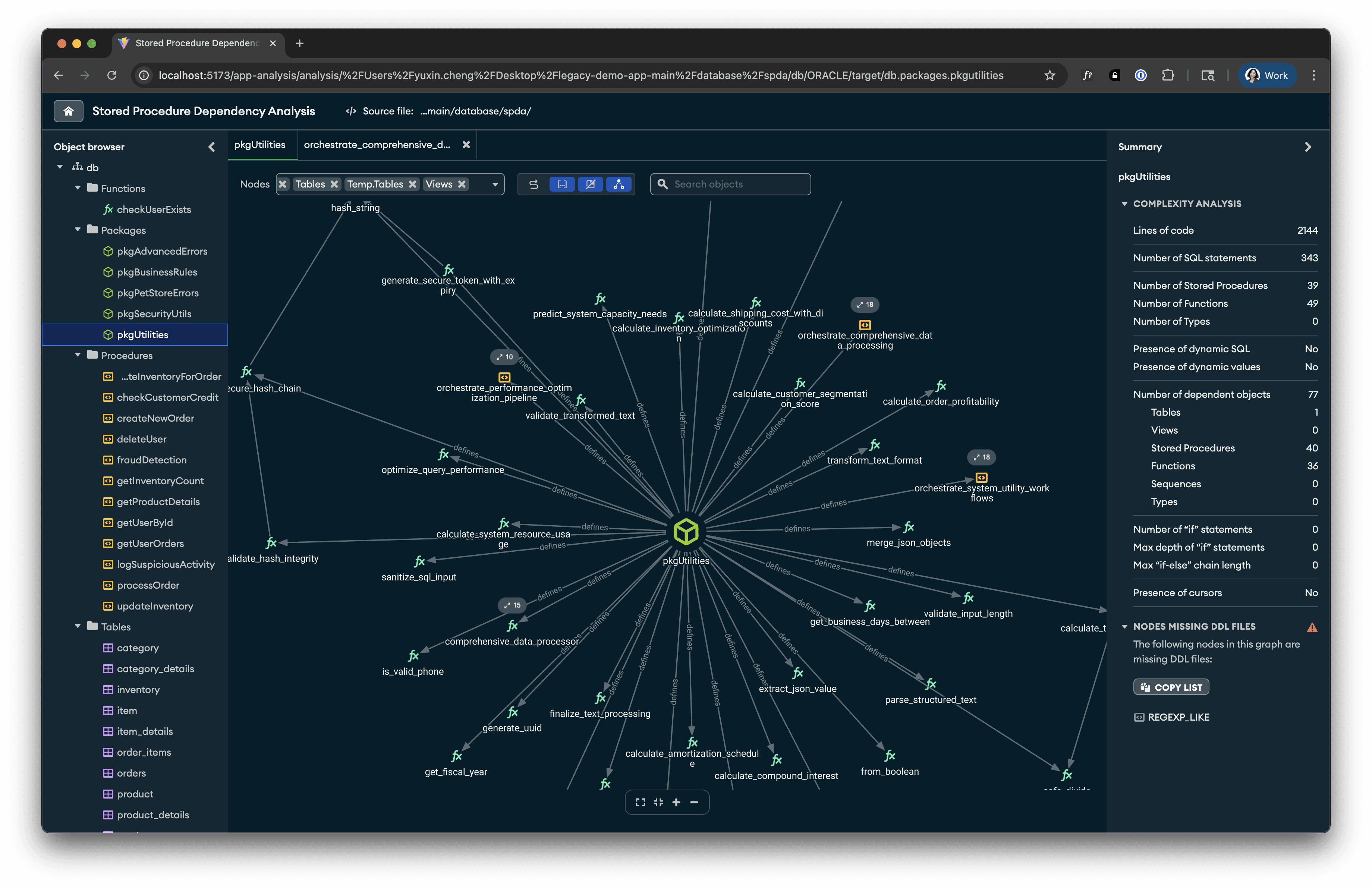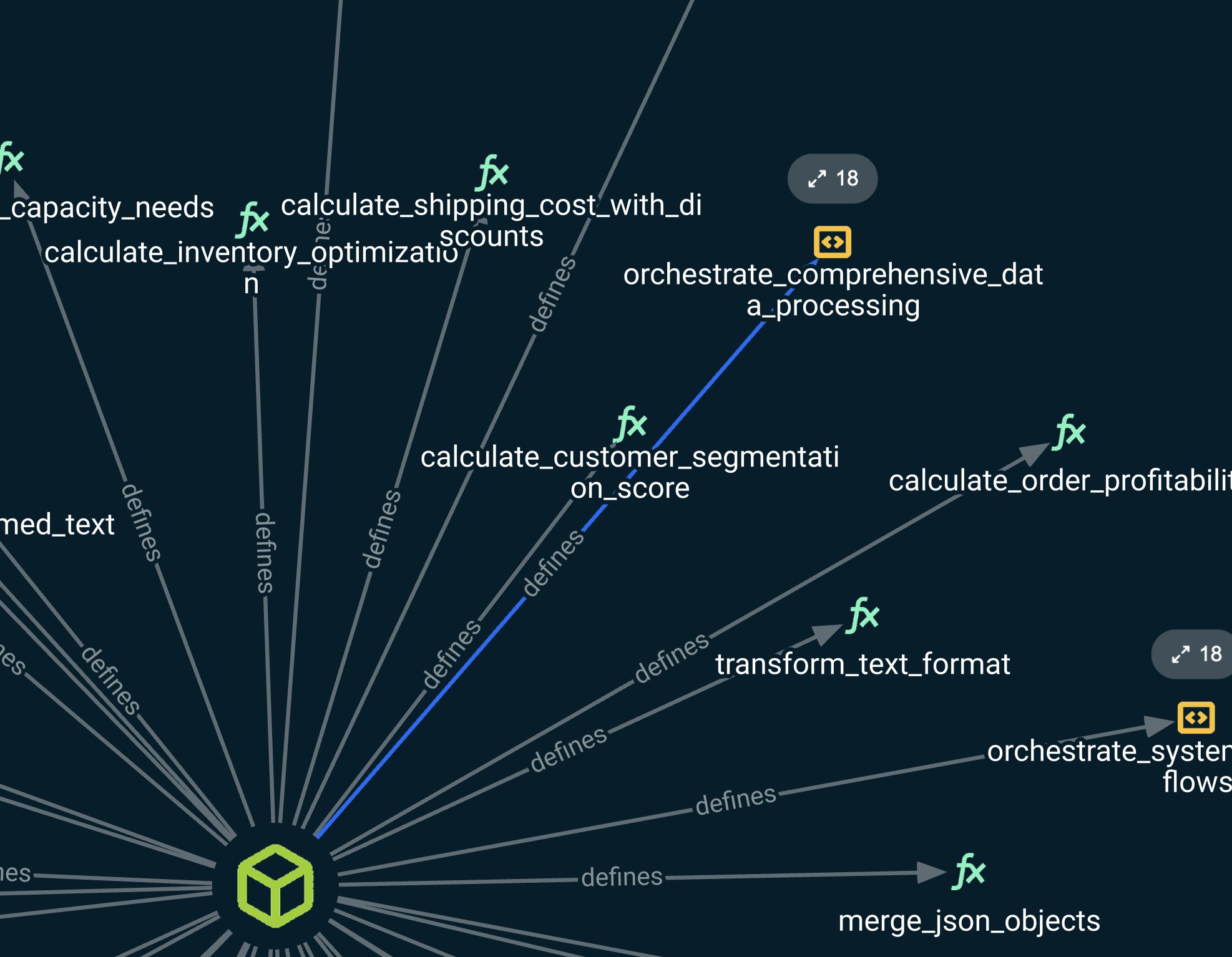Stored Procedure Dependency Analyzer (SPDA)
2024-2025
lEAD dESIGNER
What is SPDA?
A “Stored Procedure” is a precompiled collection of SQL statements stored within a database. SPDA is a tool that analyzes dependencies among these stored procedures and other database objects and visualizes these dependency relationships into a graph.
Database object types represented in the graph
Stored Procedures
Functions
Packages
Tables
Temporary Tables
Views
Sequences
Types
Why is it important?
When modernizing legacy applications, it’s crucial to understand the current database before a modernization plan can be made. Legacy applications often contains a large number of stored procedures that created inter-woven dependencies webs. Visualizing the dependency graph gave engineers a clear picture of how complicated the modernization effort would be, where are the complexity located in the database, and how to scope the work.
Visual details

Object browser
Left side panel that organizes files by object type after the .sql file is parsed
View tabs and view settings

Main View - render the graph of selected entity from Object browser
Nodes dropdown: select object types to be rendered in the graph
Graph Controller: customize the graph view based on jobs to be done
Search bar: search for a specific node to view its dependency and complexity
Sub View - render the graph of selected nodes from the graph
Dependency graph

Button to expand parent node with child nodes
Highlight the dependency of the selected node
Complexity analysis

Summary panel
Complexity analysis of each selected database object
Impact
By visually presenting the complexity of legacy applications in an easily digestible format, SPDA has made a significant impact in securing modernization contracts and creating realistic scopes of work.
For example, in one project, without the analysis tools, the engagement could have been significantly under-billed at just a few hundred thousand dollars instead of $Xm. This prevented the risk of underestimating the effort required and ensured proper billing aligned with the project's scale.
YUXIN CHENG | NEW YORK | 2025